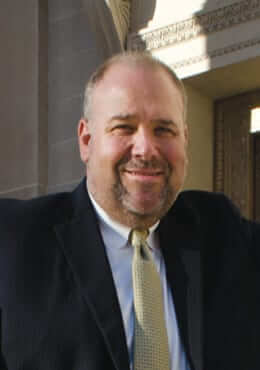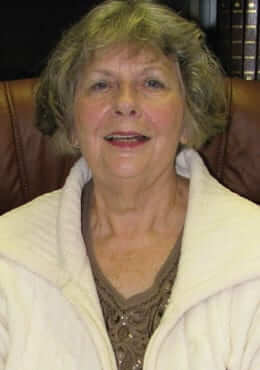Past reforms have professionalized lobbying but another set of efforts seeks to track the money that buys influence.

The American League of Lobbyists announced in November that it would now be known as the Association of Government Relations Professionals. The explanation: The organization’s scope has broadened. That didn’t keep eyes from rolling. “What do you call a trade organization that represents lobbyists, when ‘lobbyist’ has become a dirty word?” asked The Business Journals’ Washington Bureau chief. “These savvy professionals … know that reputation matters. And they know that theirs stinks,” read The Washington Post. It smells in state capitals, too. Charleston lobbyist Chris Marr, co-founder of CRW Management Group, says he’s considered calling himself a government affairs professional, a policy educator—even, he jokes, a policy entrepreneur.
State and federal reforms over the past quarter century have largely professionalized the lawmaker-lobbyist relationship. But even if blatant corruption has been mopped up, the stench persists. Here’s why: Money still buys influence, and we still suspect spendy lobbyists get more than their share, sometimes to the detriment of the rest of us. Some West Virginia legislators want to track it.
Fringes of Government
Anyone who tries to influence government is a lobbyist. It’s a right each of us gets, part of our freedom of speech, and thousands of people in the state do it each year. A council member who pleads for city sewer funding, a teen who writes to oppose year-round school—they’re lobbyists. But those who do it for a living have to register with the state, and 300-some professional lobbyists are registered in West Virginia at any given time. About 70 percent are in-house lobbyists who promote their organizations’ and companies’ interests as part of their jobs. The remaining 30 percent, contract lobbyists who hire themselves out to advocate for multiple clients’ agendas in Charleston, are the most immersed in capitol culture.
Taken together, this corps of lay and professional advocates operates at the fringes of government, nudging and tugging it where they think it should go. It’s an important function, especially in states like West Virginia that have part-time citizen legislatures. Our 34 senators and 100 delegates—by profession real estate agents, mayors, pastors, lawyers, and business owners—can’t be experts on the subjects of the hundreds of bills that are introduced each year. Lobbyists educate policymakers about the unintended consequences of bills, Marr says. Delegate Barbara Fleischauer, D-Monongalia, says lobbyists’ expertise helps to refine laws as they’re crafted. “We definitely rely on them to fill in some gaps for us.” All of that dialogue up front minimizes legal challenge at the back end. And once bills are passed, lobbyists work with members of the executive branch—employees of agencies like the Department of Environmental Protection and the Bureau for Public Health—to shape the rules that will carry them out.
Like other professionals, lobbyists take pride in their skill. “You know how a bill becomes a law, but there are a lot of nuances that aren’t explained or taught,” says Julie Archer, in-house lobbyist for the nonprofit West Virginia Citizen Action Group. “Even though I’ve been doing this for over 10 years, I pick up on something new every year.” A good lobbyist knows his subjects cold, according to 20-year contract lobbyist Tom Susman at the firm TSG Consulting. “You have to be a subject matter expert.” Working in a profession with a too colorful past, almost all are quick to say integrity is their main asset. “Ask any member of the Legislature about me—they’ll tell you I’m honest,” says contract lobbyist Paul Hardesty of Capitol Concepts. “I’d rather hurt their feelings than lie to them. That’s the way you have to do this business.”
There’s Spending . . .
In decades past, the West Virginia Coal Association maintained a hotel suite in Charleston any time the Legislature was in session. It was occupied, so it’s told, by lobbyists Carmine Cann and Ned “Big Daddy” Watson, both former chairmen of the powerful House Judiciary Committee. Legislators were welcome to the suite’s food and liquor and a seat at the card table day and night. It was exactly the kind of behind-closed-doors largesse that joined “lobbying” and “corruption” in the public mind.
All that changed in 1989 with the West Virginia Governmental Ethics Act. No longer are lobbyists permitted to give, or legislators to receive, in such private and unlimited fashion. These days lobbyists report their spending on gifts, which are capped at $25 a year for any one public official, and on meals, which are not capped; they also report certain travel, lodging, and advertising expenses, along with any campaign contributions—mainly, the types of expenditures that most raise suspicion.
Citizens can now learn which employer or clients each lobbyist works for, which lawmakers they’re feeding, and how much they’re donating to whom. Topping the spending list is always the high-profile and candid Hardesty, who represents 30 clients and spent more than $100,000 in the past five years. His reports tally meals, mostly—dinners with lawmakers and their spouses, catered events for whole groups of legislators and their staffs—as well as sizeable campaign contributions. And the public now has a snapshot of these expenditures for the state as a whole: $325,000 in 2009, about $450,000 in 2010 and 2011, and a little more than $570,000 in 2012. Those last three were election years, and heavier on campaign contributions.
And There’s Spending . . .
But while gifts, meals, and campaign contributions are the lobbying expenditures most susceptible to abuse, they’re a small part of the total influence industry.
In a 2012 State Integrity Investigation headed up by the nonprofit investigative Center for Public Integrity, or CPI, West Virginia pulled a dismal score of 53 out of 100 on lobbying disclosure. Many states scored in the 90s, and only seven came in below West Virginia. Why? While the state drew high marks for registering lobbyists and for requiring disclosure of some expenditures, it ranked low in two main areas. One is disclosure by lobbyists of their compensation. The other, reporting by lobbyist employers and clients of their expenditures.
Why would anyone think the compensation of lobbyists, private citizens exercising a constitutional right, should be public information? “Personally, I think that’s an invasion,” Marr says, echoing the sentiments of other lobbyists. “It may make for sexy media fodder, but it’s a business-to-business transaction and I don’t think the amount a lobbyist is paid compromises the process.”
But 24 states do require some form of compensation disclosure, and it can be by far the largest part of all lobbying expenditures reported. In 2012 lobbyist compensation was three-quarters of the total $9 million in spending reported in Vermont, for example, and three-quarters of $54 million reported in Maryland. The implication seems to be that, while the public is worrying about steak dinners and cocktails, what brings the most value—the most influence—to lobbyists’ clients is the lobbyists themselves: the relationships they form, their time learning about issues, their presence at the capitol and at agency offices. While reporting meals and campaign contributions may minimize corruption, disclosure of compensation begins to reveal the more subtle paths of influence.
Several West Virginia legislators believe lobbyist compensation should be public information. Delegate John Ellem, R-Wood, introduced a bill in 2013 that would require lobbyists to report their compensation and its sources. “It’s about transparency,” he says. His bill died in the Judiciary Committee. Delegate Troy Andes, R-Putnam, has offered a bill each year since 2010 that would require lobbyists to report their compensation agreements. Dead four years in Judiciary. Fleischauer has been at it the longest. Seven years running, she’s introduced a bill to require disclosure of lobbyist compensation, along with contingent compensation—payment specifically for successful lobbying. Seven years running, dead in Judiciary. What’s the hardest kind of bill to pass? One lobbyists hate.
Asked why disclosure of lobbyist compensation is a good idea, Fleischauer gave a current example. “The drug companies have a lot of lobbyists at the capitol arguing against the idea of prescriptions for the drugs to make meth. I’d like to know how much they’re spending on that,” she says. She wants the constituents of anyone who votes against prescriptions to know how much money the industry spent to influence their votes. And, finally, she wants to expose any disproportionality. “We don’t make very much as citizen legislators,” she says—lawmakers get $20,000 a year for what is, for most, a day-in, day-out occupation alongside their profession. “The idea that somebody could be making five times as much as we are to influence us is troubling.”
Ellem and Fleischauer plan to pursue legislation again in 2014, and they expect a fight. “I think there’s a lot of behind-the-scenes resistance to something that some in the lobbying community probably see as a private matter,” Ellem says. “I don’t have any illusions about it being easy.”
But maybe there’s a better approach: the state’s other shortcoming in CPI’s investigation, reporting of expenditures by lobbyist employers and clients. Because, the fact is, our 300-some lobbyists are straw men in this discussion. Meager or enviable, their compensation is really only meaningful as part of the total government relations spending of the 500-some consumer, trade, labor, and environmental organizations and companies they represent. In 34 states, such influence-seekers have to report what they spend on lobbying. These states’ rules can capture lobbyist compensation, but also other lobbying related expenditures that would otherwise never be known, like spending on research and on experts to testify at committee hearings.
Employer and client spending give a much wider window on influence than would lobbyist compensation alone. The reporting requirements in Maryland, for example, enable the State Ethics Commission to publish each year the total each organization and company spends lobbying. Building Trades for National Harbor, a large upscale development, spent the most in 2012, at $2 million, while Maryland Workers for National Harbor, at number four, spent another $700,000. Rounding out the top five were a gaming corporation, a government fraud watchdog organization, and a realtors’ association. Compared with this kind of information, the paychecks of individual lobbyists hold little interest.
Wisconsin goes a step further, uncovering the paths of influence from beginning to end. Lobbyist employers and clients report spending. More usefully, the reports detail numbers of hours spent on each bill and executive matter lobbied. The state’s “Eye on Lobbying” website (lobbying.wi.gov) has made all this data publicly searchable since 2000. The very limited amount of information documented in West Virginia is available only in hard copy.
Is this a good model for West Virginia? It depends on the goal. Using Fleischauer’s drug company example, West Virginians can currently find out how much the lobbyists employed by drug companies spend on lawmakers—although, for those with multiple clients, they can’t be sure which client it’s for or whether any specific bill is discussed. With lobbyist compensation disclosure, they could attach some salary figures to that uncertainty. With requirements like Wisconsin’s, they would know exactly which drug companies devote how much attention to exactly which bills.
And Then There’s Spending
Now, about those campaign contributions. Candidates for legislative office are allowed to ask lobbyists for campaign contributions, and lobbyists are allowed to make them. Even though contributions are reported, it’s the one area where observers of influence feel the potential for corrupt dealings is still pretty wide open. Senator Mike Green, D-Raleigh, introduced a bill in 2013 to prohibit lobbyists from making campaign contributions to or raising money for legislative incumbents or candidates during the 60-day regular session, when the temptation to trade favors would seem to be highest. That bill died in Senate Finance—raising the question, what’s the other hardest kind of bill to pass? One legislators hate.
Lobbyists, unsurprisingly, are all for it. “I like the legislative process—I don’t like campaigns. 2014 is going to suck,” says Marr. Hardesty has similar thoughts. “Election year stinks. I’ve already received nine invitations for fundraisers next week,” he said in mid-November. He routinely gives $15,000 to $20,000 in election years, and he’s up front about it. “I have a large list of clients; I’ve been very fortunate in this business, and I’m expected to participate. The legislators who I think do a good job for the state, I try to participate.”
The Center for a Brighter Future, a think tank headed up by Morgantown businessman and former gubernatorial candidate Bill Maloney, wants to take it even further than Green. “We have a bill written to entirely disallow political donations from registered lobbyists and their immediate families. Lawmakers are going to have to figure out better ways to raise money,” Maloney says, adding that he is working with a bipartisan group of potential sponsors.
There is some question whether such a law would violate lobbyists’ freedom of expression. A number of states ban lobbyist contributions outright to some classes of state-level candidates—California, Kentucky, and South Carolina among them. West Virginia University law professor and state constitutional expert Robert Bastress feels that, while Green’s bill prohibiting contributions during the session might be constitutional “under the rationale that the government has a compelling state interest in preventing the appearance of quid pro quo,” statutes prohibiting contributions year-round are vulnerable to challenge. “You can cap the amount of contributions to a candidate, but you can’t say someone can’t contribute at all,” he says. But WVU law professor emeritus and ethics scholar Forest “Jack” Bowman doesn’t see it as a violation. He says, “You can choose to be a lobbyist or to contribute. Not both.”

Paul Hardesty
Sole proprietor, Capitol Concepts
Lobbyist since 2007
Clients: Alliance Coal; Alpha Natural Resources Services; American Electric Power; BrickStreet Mutual Insurance Co.; Centene Corp.; Coal River Energy; Contractors Association of West Virginia; CVS Caremark; E.L. Robinson Engineering; General Cigar Co.; The Greenbrier; Hatfield-McCoy Regional Recreation Authority; Loved Ones in Home Care, Inc.; MarkWest Energy Partners; Mining Repair Specialist, Inc.; MorphoTrust; Natural Resource Partners; Northwood Health Systems; Patriot Coal Corp.; Peerless Block & Brick Co.; Penn Virginia Resource Partners; PepsiCo; Petroplus & Associates; Petroplus Lane; Swedish Match North America; Taggart Global; TSG Consulting; Tyler Mountain Water Co.; West Virginia Retailers Association; West Virginia University Research Corp.; West Virginia United Health System
How did you get your start? I was director of the Office of Coalfield Community Development during the Wise administration. I was on his legislative team and we lobbied the governor’s agenda. I was also vice chair of the Coal Truck Task Force, working on the coal truck bill. It was kind of a baptism by fire. I found it extremely interesting.
How much of your time do you spend lobbying? January through early April, the legislative sessions and the budget week following the session, that’s lobbying 24/7—you have to be there to participate. And interims each month. The rest of the time, it turns more government relations—if my clients have issues with regulatory stuff, with state or local government entities, I try to help them navigate that process.
Favorite methods? I entertain quite a bit. I tell my clients when they hire me, “If you want me to generate white papers and do fancy reports, go hire someone else. If you want me to introduce and pass legislation that affects your business, I’m your guy.”
What makes a good lobbyist? Honesty. If I lie to one of those 134 members, I’ve damaged my credibility and I can’t repair that. I will not represent a client if I don’t believe in what they do. I can’t sell something I don’t believe in. I’ve turned down some big hitters. It’s easy to sell a product you believe in.
Why do we need lobbyists? Companies need to protect their interests and their brands—I think that’s critical. And in a part-time legislative process, members need to be apprised of the issues. Lobbyists provide that service.
Would you like to share how much you are paid for lobbying? A bill comes up every year in the House of Delegates to get us to divulge our contracts and I’ve never been a fan of that. If it ever passes of course I’d comply with it. I’ve gotten criticized before because I take people to dinner. I report that dinner to the Ethics Commission.
What are the dangers of lobbying? I think it’s got a stereotype that it will never get rid of as a direct result of things that have gone on in Washington and in other states. I’ve heard the same horror stories as everyone else, about moneyed interests still having a lot of influence. Legislators don’t make much money for what they do and the price of an election keeps continuing to grow. Should we watchdog that better? Anything you watchdog is appropriate. Someone has to watch it.
Random thoughts A lot of people have preconceived notions about what a lobbyist is and does. The best way to get a grasp on it is to be part of the legislative process and learn for yourself. Last time I checked, the doors were open.
 Megan Roskovensky
Megan Roskovensky
Director of Communications and Research at the Law Office of Philip A. Reale
Lobbyist since 2011
Clients: Alkermes, Inc.; American Bail Coalition; Braskem; CGI Technologies & Solutions, Inc.; Clay Center for the Arts & Sciences; Humana; Independent Oil & Gas Association of West Virginia; Health Management Systems, Inc.; MultiState Associates, Inc. on behalf of HealthPort; MultiState Associates, Inc. on behalf of U.S. Fireworks Safety Commission, Inc.; Odebrecht; Pharmaceutical Research and Manufacturers of America; Wells Fargo Insurance Services of West Virginia, Inc.; West Virginia Community Action Partnership, Inc.; West Virginia Interactive; West Virginia Society of Oral & Maxillofacial Surgeons; West Virginia Beer Wholesalers Association; West Virginia Kennel Owners Association
How did you get your start? I was a legislative staffer from 2006 to 2010 and I got to know the process and the people involved. I was recruited by a lobbying firm because of my experience.
How much of your time do you spend lobbying? All of my time is spent working to forward clients’ interests in West Virginia. During the session and interims, I’m down at the capitol a lot. But we operate by a philosophy that the session is not the time to get real things done for the state of West Virginia—we consider lobbying to be a year-round thing. Outside the session, we learn about the subjects that are of interest to our clients and educate members and the administration about those subjects. You have to lay a solid foundation of information and research for the January session.
Favorite methods? We do very, very little entertaining—that’s not our style. I love to visit. I worked with a lot of these people for several years before I became a lobbyist—I know their wives and husbands, I know their kids—so most of my time at the capitol during the session is checking in, saying, “How’s everything going?” Sometimes I say, “I’m sorry, I gotta lobby you for a minute.” And we do also generate white papers.
Why do we need lobbyists? With a citizen legislature, it’s just impossible for them to learn and research as much as needed to make good decisions on legislation. I think that’s the hole we can fill.
What makes a good lobbyist? Passion, thick skin, a sense of humor, and a real love for your state. But ultimately it comes down to honesty. I know, or at least I hope I know, our legislative members recognize that I care about them, our state, and my own integrity enough that I will always be truthful. We won’t always agree, and that’s OK.
Would you like to share how much you are paid for lobbying? I guess I’ll pass.
How do you measure your success? A lot of what our clients like is just to know we’re not going to let anything slip through the cracks. And as a female, sometimes just someone recognizing me as a valuable resource gives me way more of a high than getting a bill passed or an amendment adopted.
Lobbyist she admires Lisa Dooley with the Municipal League is a wonderful person and I will be happy if I can make my career look even remotely like hers. She’s a straight shooter, she’s knowledgeable, she’s respected, and she’s just a good person.
Random thoughts Everyone who works at this office is a West Virginian. We strive to make our clients’ interests line up with the state’s interests.
 Anne Palmer
Anne Palmer
Executive Director, Mineral County Chamber of Commerce and Convention and Visitors Bureau
Lobbyist since 2007
Employer: Mineral County Chamber of Commerce and Convention and Visitors Bureau
How much of your time do you spend lobbying? My main time is when we’re in Charleston for Mineral County Days. Throughout the year of course there are opportunities to meet with legislators and I take advantage of that, too.
Favorite methods? We take lunch down from Potomac State College and their culinary program and invite all the legislators and office staff. We also have a middle school steel drum band that entertains our guests.
What makes a good lobbyist? My success is actually getting to our legislators one on one, getting them to understand our projects.
Why do we need lobbyists? You need to explain your needs. That’s what it’s all about. You need to request and be informative. When we first started taking Mineral County Day in Charleston seriously, we had to identify ourselves as being located next to Cumberland, Maryland. That’s changed.
What are the dangers? From my perspective, sometimes lobbyists get a bad name because they just go too far—they can be aggressive. There’s a time to be aggressive and a time to be informative.
How do you measure your success? Some of the things we’ve had really good success with were the Frankfort PSD water system and sewer system. We got grants for the courthouse roof here and records management grants for microfilming; money for Ridgeley community center upgrades; a Fountain PSD well water protection grant; we have fire hydrants in Elk Garden, and we also have a new Keyser primary school. State funding for these things came due at least in part to lobbying efforts.
Random thoughts Maybe I’m a beggar, but I enjoy it very, very much. I truly do. This is just part of me.
Written by Pam Kasey



 Megan Roskovensky
Megan Roskovensky Anne Palmer
Anne Palmer







Leave a Reply